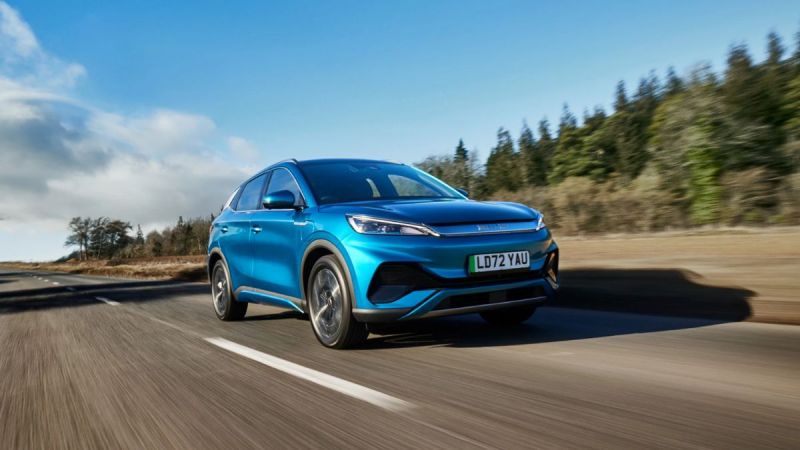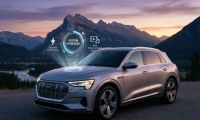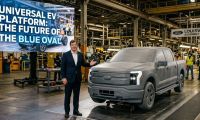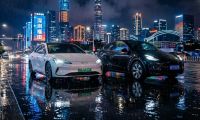With their electric car success, Chinese car maker BYD passed both Honda and Nissan, becoming the seventh-largest automaker globally.
When I first entered Competitive Analysis at IBM in the 1980s, I had to take some competitive analyst courses. One of the first was on GM’s market-leading automotive competitive analysis process, which was so complete they could tell you the cost of every part and process that went into a competing product. However, we also learned that this process created the Chevy Vega, which was not competitive because they designed that car to compete with Toyota and Nissan. Still, they existed five years before the Vega was released, and the time it took to analyze and build the car made the result pointless.
The same thing is happening with the Chinese car companies in that they are advancing as fast as the Japanese car companies did back then, and the competitive efforts by the more established car makers in Japan are quickly becoming non-competitive. What is different this time is that China is even more aggressive with electric car technology than Japan is, allowing the Japanese cars from BYD to outsell Japan. Surprisingly, China is actually leading in sustainability overall (something I didn’t know).
I think this may be one of the downsides of the Chinese sanctions, which artificially increase the cost of Chinese cars, making them appear more expensive when sold outside of China. However, even with this disadvantage, companies like BYD are surpassing their overseas counterparts in sales volume.
The Chinese Advantage
China has been even more aggressive than Japan in setting up its auto industry. Like Japan, it aggressively learned from other car companies. Still, unlike Japan, it also moved to acquire the rights to materials like rare earth metals, lithium-ion mines, and nickel mines over time, giving it substantial material cost advantages for both electric cars and personal electronics.
This aggressive manufacturing materials control, which extends beyond the materials I’ve listed, has been impressive and gives China a massive materials cost advantage when building electronics, including electric cars. This is on top of their significant labor cost advantage.
The combination of these advantages means that China can massively underprice its foreign competitors and is already the world leader in manufacturing. If the Chinese sanctions are ever removed, they’ll fast-track to electric car dominance and, depending on how much electric car infrastructure is in place, may be impossible to catch from behind.
Let’s be clear: China didn’t cheat; they put in place a strategic plan for success and executed it while all of the other countries and car companies sat back and didn’t squat. So, suppose the domestic and European car companies and their governments don’t step up their game. When these sanctions are dropped, China will likely be where the US once was regarding world automotive dominance.
Wrapping Up:
BYD, in particular, but hardly alone, has, with the extreme help of the Chinese government’s strategic acquisitions, reached a point where they are only constrained by artificial sanctions. Granted, they have had some quality issues, but so has Tesla, and, like Japan did (they initially had huge quality issues as well) they are already overcoming these quality issues suggesting that the time to respond to the market threat that China represents effectively is running out rapidly.
Given the tactical nature of most executives in all domestic vertical markets, I doubt whether the West can respond promptly. I guess Time will tell.
Rob Enderle is a technology analyst at Torque News who covers automotive technology and battery development. You can learn more about Rob on Wikipedia and follow his articles on Forbes, X, and LinkedIn.
Set Torque News as Preferred Source on Google












Comments
Spot on. I'm enjoying your…
Permalink
Spot on. I'm enjoying your content. Torque News is lucky to have you!
Thanks, John, it's good to…
Permalink
In reply to Spot on. I'm enjoying your… by John Goreham
Thanks, John, it's good to be here.
Oh, what a surprise! Shocker…
Permalink
Oh, what a surprise! Shocker! Automakers, especially American ones, bitterly and ACTIVELY resisted and fought moving to electric for so long that they GIFTED the leading edge in EVs to any country willing to take it.
Well, well! If it isn't the consequences of your actions....
In providing vehicles to be…
Permalink
In providing vehicles to be imported and sold in the USA, the Japanese virtually forced the USA manufacturers to improve their own quality to compete, and to retain a large portion of the automobile market. The Chinese may have a similar general effect on the Japanese industry so the Japanese industry will find further improvements to retain their share of the market.
The Japanese are pretty…
Permalink
In reply to In providing vehicles to be… by Dan Paden (not verified)
The Japanese are pretty smart, so I agree, they won't take this trend lying down.